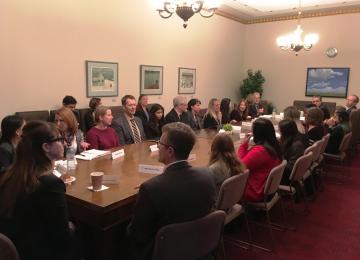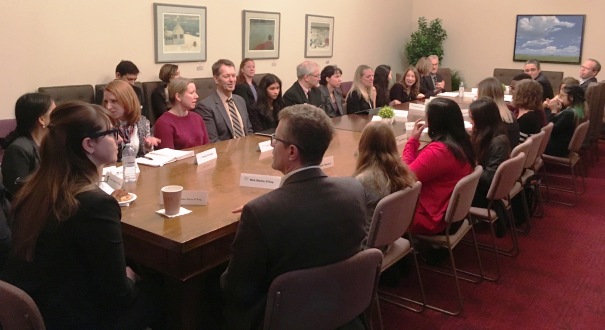
The 30 by 30 Champions Group, which consists of more than 40 members nationwide, works on strategy and action plans to improve the recruitment, retention, and professional development of women in engineering. They are a major force for change in the engineering profession, and an essential part of Engineers Canada’s goal to see the percentage of newly licensed engineers who are women climb to 30 percent by the year 2030.

The 30 by 30 Champions Group, which consists of more than 40 members nationwide, works on strategy and action plans to improve the recruitment, retention, and professional development of women in engineering. They are a major force for change in the engineering profession, and an essential part of Engineers Canada’s goal to see the percentage of newly licensed engineers who are women climb to 30 percent by the year 2030.
We recently spoke with Lisa Stepnuk, 30 by 30 Champion for Engineers Geoscientists Manitoba, on the work her organization is doing to achieve 30 by 30.
 What are some highlights from your 30 by 30 work you would like to share with us?
What are some highlights from your 30 by 30 work you would like to share with us?
We have formed the Manitoba 2030 Coalition, which includes the largest ten employers of engineers in the province, and another several employers who have reached out to join. The Coalition meets quarterly, and members are currently evaluating internal initiatives for retention, promotion, and outreach of women in their organizations. The Engineering Changes Lives Provincial Steering Committee, which advises on our 30 by 30 strategic end, is also discussing the formation of an education sub-committee.
What do you see as the key barriers to achieving 30 by 30?
It is a complex and multi-faceted problem with gender biases that start in early childhood and manifest all along the pipeline of a professional engineer. Women also face barriers of racism, transphobia, homophobia, classism and ableism and we need to make sure we are addressing them all.
What are the most important things you've learned as a 30 by 30 Champion that others would benefit from knowing?
Engaging leadership in industry and education is key, and making effective culture and policy changes will require a real spirit of commitment with resources, metrics-tracking, and evidence-based best practices led by experienced professionals.
What do you think it will take to achieve 30 by 30 nationwide?
Nationally, sharing evidence-based best practices that are customized to reflect or take into consideration local demographics and communities.


